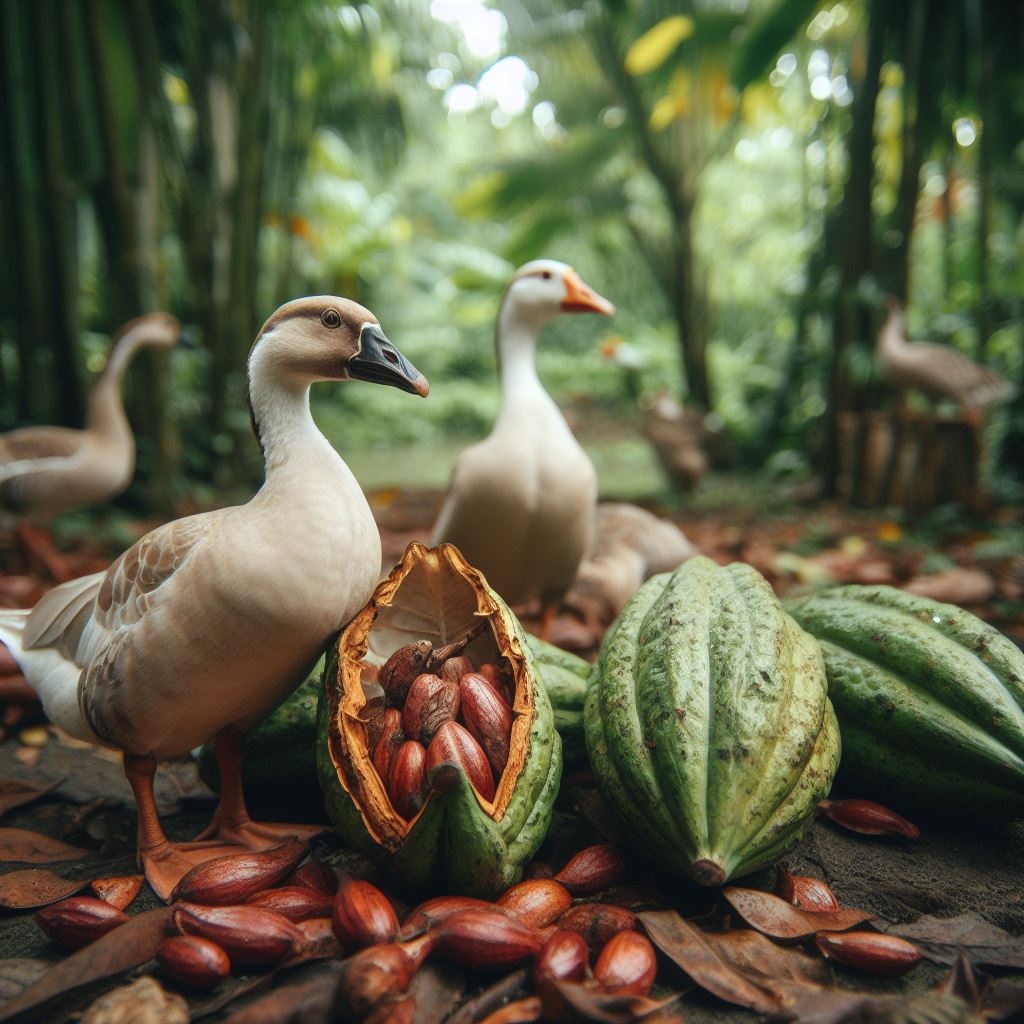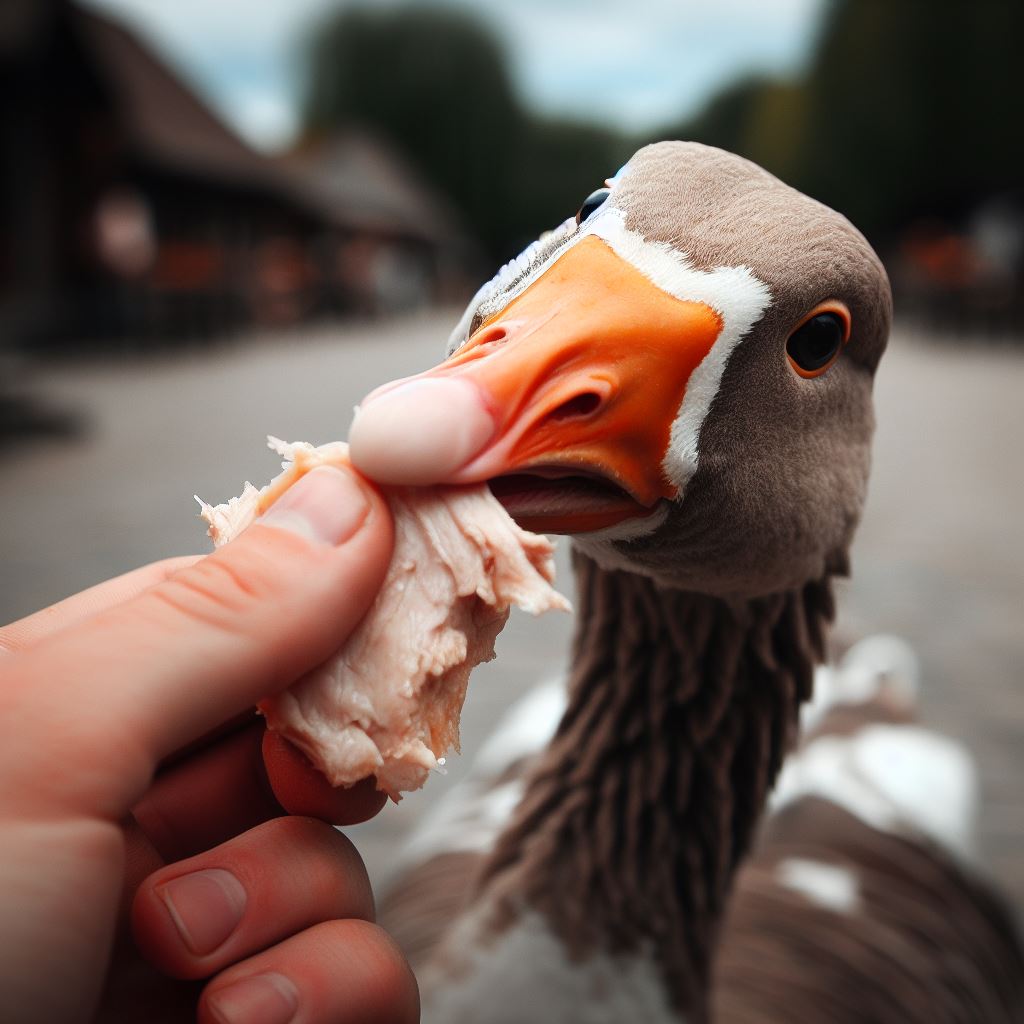Can Geese Eat Cranberries? Discover the Facts Today

Table of content:
Many people enjoy feeding geese as a way to connect with nature and observe their behavior. But one question that often arises when it comes to feeding geese is whether cranberries can be included in their diet.
This article aims to explore the facts about whether can geese eat cranberries, including whether it is safe and beneficial for them. In the following sections, we will look at the natural feeding habits of geese, the potential benefits and drawbacks of including cranberries in their diet, and practical tips for incorporating cranberries into their food.
Key Takeaways:
- Geese are a popular species of bird enjoyed by many for their natural beauty and behavior.
- Feeding geese is a common pastime in parks and gardens, but questions remain about the safety and benefits of certain foods, such as cranberries.
- This article will explore the topic of whether geese can eat cranberries, including their natural feeding habits, the potential benefits and risks of including cranberries in their diet, and practical tips for feeding cranberries to geese.
The Geese Diet: Understanding Their Feeding Habits
Geese are known for their voracious appetites and will eat almost anything that comes their way. However, to ensure their overall health and well-being, it’s essential to understand their feeding habits and provide them with a proper diet.
Geese are primarily herbivores, and their diet consists of grasses, grains, and aquatic plants. They are also known to feed on insects and small animals occasionally.
Their Natural Foraging Behavior
Geese are natural foragers, spending most of their time grazing and browsing for food. They prefer to feed in open areas such as fields, meadows, and pastures, where they can easily spot potential food sources. When they find a food source, they will often graze until it’s depleted or until they become full.
Their Preferences
Geese have varying preferences when it comes to food sources. Some prefer tender grasses, while others prefer seeds, grains, or aquatic plants. They also have a fondness for certain fruits and berries, such as blueberries, strawberries, and apples.
However, it’s important to note that while geese may enjoy certain foods, it doesn’t necessarily mean that these foods are suitable or healthy for them.
The Proper Diet for Geese
To ensure the proper nutrition for geese, their diet should consist of a combination of grasses, grains, and vegetables. A balanced diet should also include a small amount of protein, such as insects or mealworms.
It’s important to avoid feeding geese bread and other processed foods as they lack the necessary nutrients and can lead to health complications. Additionally, foods high in salt, fat, or sugar should be avoided as they can be harmful to their health.
In conclusion, understanding the feeding habits of geese and providing them with a proper diet is essential for their overall health and well-being. By offering them a balanced diet of grasses, grains, and vegetables, supplemented with a small amount of protein, geese can thrive and live a healthy and happy life.
Can Geese Eat Cranberries? Can They Be a Part of Their Diet?
Given that cranberries are a popular fruit and an excellent source of antioxidants and other beneficial compounds, many people wonder if it’s safe to feed them to geese. In fact, some bird enthusiasts have been feeding cranberries to geese as a treat for years.
The Nutritional Value of Cranberries
Cranberries contain high levels of vitamin C, fiber, and antioxidants. These nutrients are important for maintaining healthy immune systems, digestive function, and overall well-being in geese.
The Pros of Feeding Cranberries to Geese
Feeding cranberries in moderation can diversify the diet of geese and provide them with essential nutrients. Research shows that cranberries can help prevent urinary tract infections and other health problems in birds, which makes them a popular choice for many bird owners.
- Cranberries reduce inflammation and boost the immune system, which helps to keep geese healthy
- They can help prevent urinary tract infections and other health problems in geese by blocking bacteria from sticking in the urinary tract and digestive system
- The tart flavor and bright color of cranberries make them an attractive treat for geese
The Cons of Feeding Cranberries to Geese
As with any food, there are potential risks and drawbacks associated with feeding cranberries to geese. Eating too many cranberries could lead to digestive problems like diarrhea, and some geese may have allergies or sensitivities to the fruit. Additionally, cranberries may contain pesticide residues that could be harmful to geese.
- Feeding too many cranberries to geese can lead to digestive issues and diarrhea
- Some geese may have allergies or sensitivities to cranberries
- Cranberries may contain pesticide residues, which could be harmful to geese
Overall, feeding cranberries to geese in moderation can be a healthy and enjoyable addition to their diet. For geese, cranberries should always be given in moderation, with consideration for their individual dietary needs and any potential food sensitivities or allergies. As with any new food, it is important to introduce cranberries gradually and monitor your goose’s response to them.
Are Cranberries Safe for Geese?
While cranberries can be a nutritious food source for geese, there are some potential risks to consider before including them in their diet.
One concern is pesticide residues. Cranberries are often treated with pesticides, which can be harmful to geese if ingested. It is important to source organic cranberries or thoroughly wash and rinse conventionally grown cranberries before feeding them to geese.
Another potential issue is digestive problems. Cranberries are high in fiber and can cause digestive upset if too many are consumed at once. It is recommended to gradually introduce cranberries into a goose’s diet in small quantities to avoid any digestive issues.
Overall, cranberries can be safe for geese to eat as long as they are introduced in moderation and sourced from a reliable, organic supplier.
Can Wild Geese Eat Cranberries?
Wild geese have a different diet and behavior pattern compared to domesticated geese. They rely on a wide variety of food sources, including plants, insects, and small animals.
While cranberries may not be a primary food source for wild geese, they are known to consume them in the wild. In fact, cranberries are a natural part of the diet of some species of wild geese, such as the snow goose and the Canada goose.
However, it’s important to note that the consumption of cranberries by wild geese is not consistent across all species and populations. Some wild geese may not have access to cranberries, while others may prefer other food sources.
The Effects of Cranberries on Geese Health
While cranberries provide some nutritional benefits, it is important to consider their effects on the health of geese. One potential benefit of consuming cranberries is their high content of antioxidants, which can help boost the immune system of geese.
However, it is also possible for cranberries to cause digestive issues in geese, such as diarrhea or upset stomachs if fed in large quantities or in an unprepared form.
The Role of Cranberries in Preventing Urinary Tract Infections
Cranberries are commonly used to prevent urinary tract infections (UTIs) in humans, and some research has suggested that they may have similar benefits for geese. UTIs can be a common health issue in geese, particularly in captive or domesticated settings.
However, more research is needed to fully understand the effects of cranberries on the urinary health of geese. It is also important to note that cranberries should not be used as a substitute for professional veterinary care if a goose is experiencing urinary tract problems.
Incorporating Cranberries into Geese’s Diet
If you have decided to include cranberries in your geese’s diet, there are several factors to consider to ensure they receive a well-balanced and nutritious meal. Here are some practical tips:
Quantity
While cranberries can provide a range of health benefits, it’s important to offer them in moderation to prevent overfeeding. A general guideline is to offer cranberries as a treat, and not more than 10% of their daily food intake.
Preparation
Cranberries can be fed to geese in a variety of forms, including fresh, dried, or frozen. However, it’s important to ensure that they are thoroughly washed and free of any pesticides or harmful chemicals before feeding. Additionally, dried or frozen cranberries should be soaked in water prior to feeding, to prevent any choking or digestive issues.
Alternatives
If you have concerns about feeding your geese cranberries, there are several alternatives that can provide similar benefits. These can include blueberries, strawberries, or even diced apples or carrots. Remember to offer these alternatives in moderation and as part of a balanced diet.
Supplements
If you are still unsure about feeding your geese any fruits, you can consider supplements such as probiotics or vitamins that can provide additional nutrition and health benefits.
Overall, incorporating cranberries into your geese’s diet can provide a range of health benefits, but it’s important to do so with caution and moderation. By following these tips, you can ensure that your geese receive a well-balanced and nutritious meal.
Conclusion
After exploring the topic of whether geese can eat cranberries, it is clear that it is safe for them to consume in moderation. Cranberries can provide added nutritional benefits to the geese’s diet, such as improved immune function and antioxidant properties. However, it is important to note that cranberries should not be the sole food source and should be supplemented with a balanced diet appropriate for geese.
When incorporating cranberries into the geese’s diet, it is recommended to feed them fresh, washed cranberries in small quantities. It is also important to ensure that the cranberries are free of any pesticides or chemicals that could be harmful to the geese.
Furthermore, it is important to consider the source of the cranberries. Wild cranberries that grow in wetlands or bogs may contain parasites and bacteria that can be harmful to geese. Therefore, it is recommended to feed domesticated geese with cranberries purchased from a reputable source.
Overall, by taking appropriate precautions and ensuring the cranberries are a supplemental part of a balanced diet, geese can enjoy the added nutrition and taste benefits of cranberries.
Welcome. I’m Adreena Shanum, the proud owner of this website, and I am incredibly passionate about animals, especially poultry. I founded adreenapets.com as a labor of love, stemming from my desire to share my knowledge and experiences with poultry enthusiasts worldwide.




